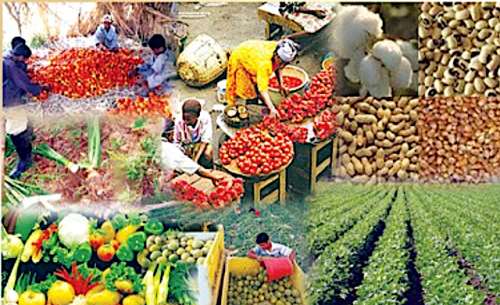The urgent need to diversify the Nigerian economy has become increasingly apparent in recent years, as the country grapples with the challenges of over-reliance on oil revenues, economic volatility, and vulnerability to external shocks. Diversification is essential for building a more resilient and sustainable economy that can withstand global fluctuations, foster inclusive growth, and create opportunities for all Nigerians.
At the heart of Nigeria’s economic diversification efforts lies the recognition of the inherent risks associated with dependency on oil exports. Since the 1970s, oil has been the primary driver of Nigeria’s economy, accounting for a significant portion of government revenue and foreign exchange earnings. However, the volatility of global oil markets, coupled with fluctuations in oil prices, has exposed the country to economic instability and fiscal vulnerabilities, as evidenced by the recent oil price crashes and recessionary pressures.
Diversifying the Nigerian economy involves reducing dependence on oil revenues and expanding into other sectors with the potential for growth and development. This includes agriculture, manufacturing, services, and information and communication technology (ICT), among others. By tapping into the diverse range of resources and talents available within the country, Nigeria can unleash its economic potential and create a more balanced and resilient economy.
Agriculture represents one of the most promising sectors for economic diversification in Nigeria, given the country’s abundant arable land, favorable climate, and vast natural resources. By investing in modern agricultural practices, value chain development, and agribusiness innovation, Nigeria can boost food production, enhance rural livelihoods, and reduce poverty and food insecurity. Moreover, agriculture has the potential to create millions of jobs, stimulate rural development, and promote inclusive growth across the country.
Manufacturing is another key sector that holds great potential for economic diversification in Nigeria. By promoting industrialisation, increasing local production, and fostering innovation and technology transfer, Nigeria can reduce its reliance on imported goods, enhance export competitiveness, and create a more dynamic and resilient manufacturing base. This requires investments in infrastructure, skills development, and supportive policies to spur industrial growth and attract foreign direct investment.
Services, including tourism, finance, healthcare, education, and ICT, offer additional opportunities for economic diversification and job creation in Nigeria. By leveraging Nigeria’s growing population, expanding middle class, and emerging digital economy, the country can capitalise on the demand for services and knowledge-based industries to drive economic growth and development. This requires investments in human capital, digital infrastructure, and regulatory reforms to facilitate business innovation and entrepreneurship.
Furthermore, economic diversification is essential for promoting regional development and reducing inequalities within Nigeria. By investing in infrastructure, education, and social services in underserved regions, the government can unlock the economic potential of all parts of the country and create opportunities for marginalised communities. This requires a holistic approach to development that prioritises inclusivity, sustainability, and social cohesion.
Diversifying the Nigerian economy is imperative for building a more resilient, inclusive and sustainable future for the country. By reducing dependence on oil revenues and expanding into other sectors, such as agriculture, manufacturing, services, and ICT, Nigeria can unleash its economic potential, create jobs, and improve the standard of living for all Nigerians.
However, achieving economic diversification requires bold leadership, strategic planning, and sustained investments in infrastructure, human capital, and innovation. By embracing the challenge of diversification, Nigeria can chart a path towards prosperity and shared prosperity for generations to come.





